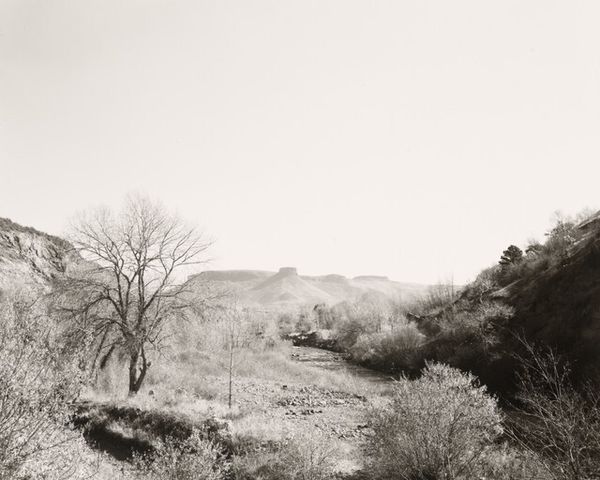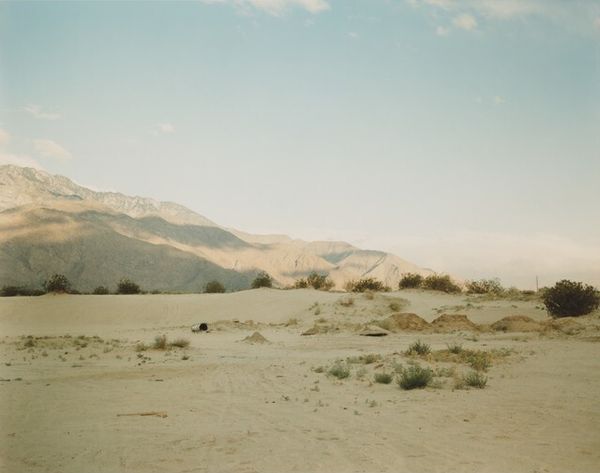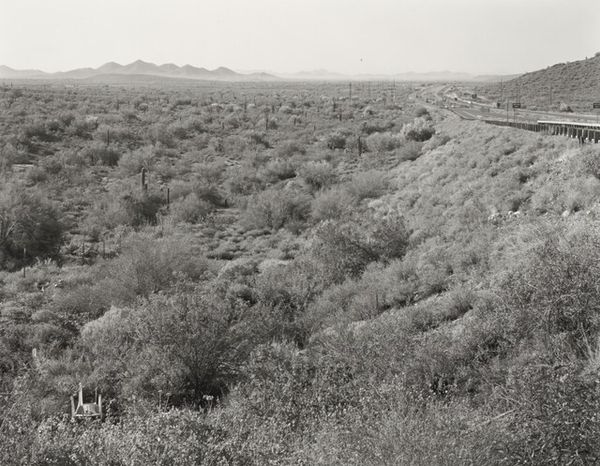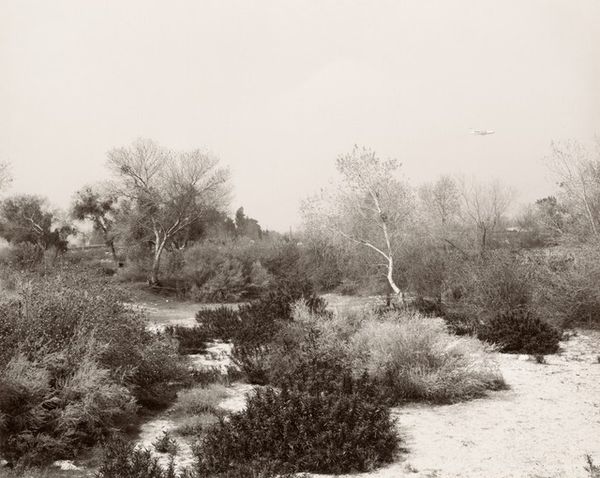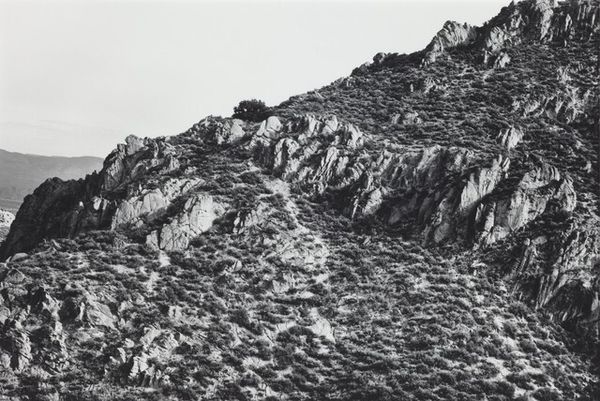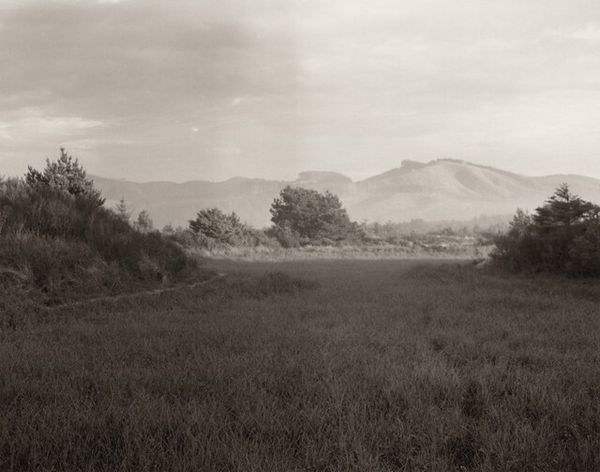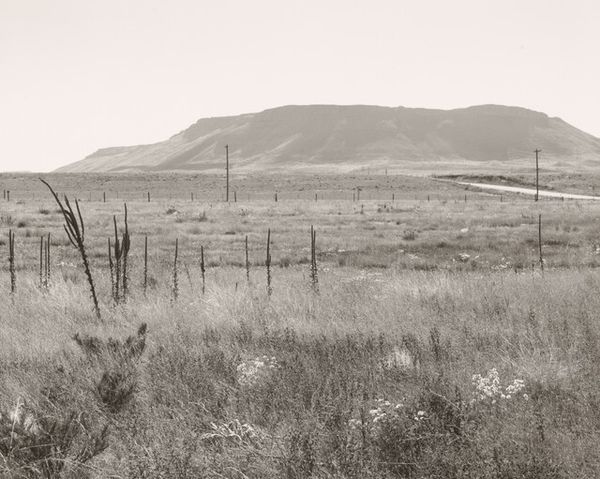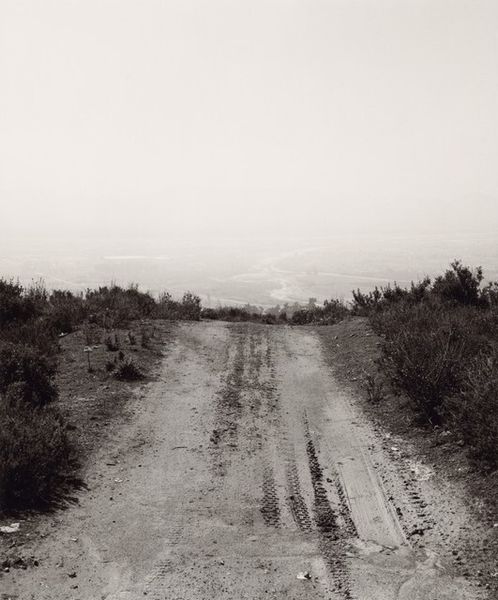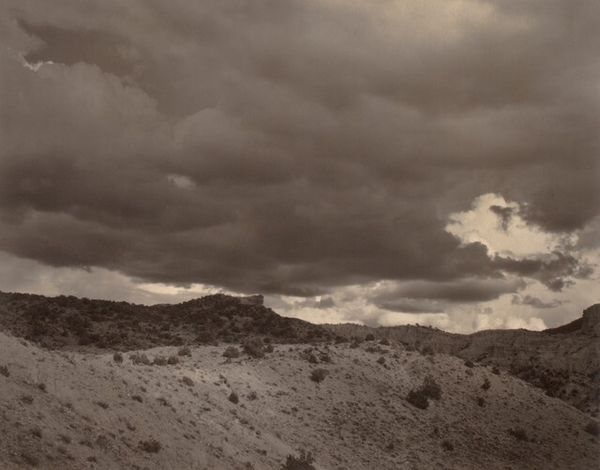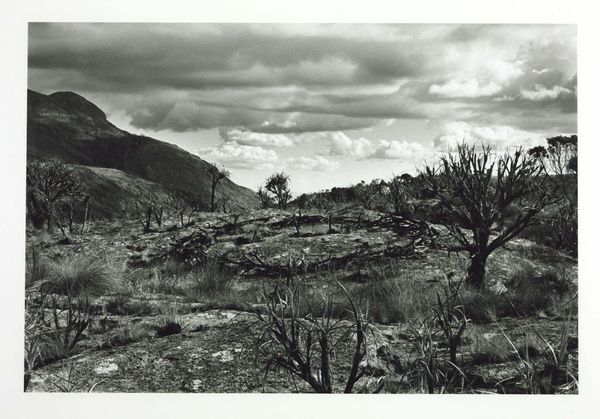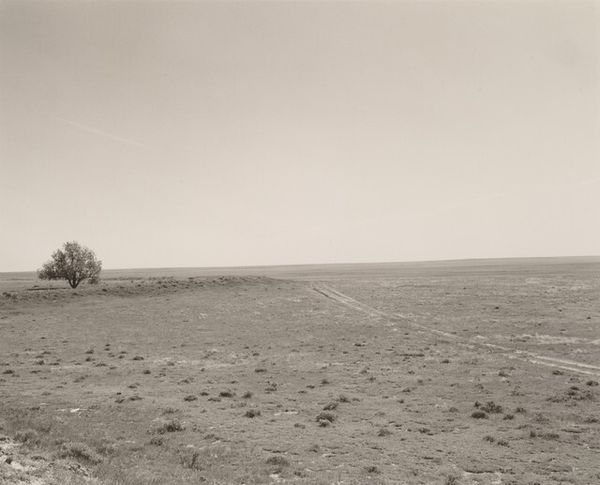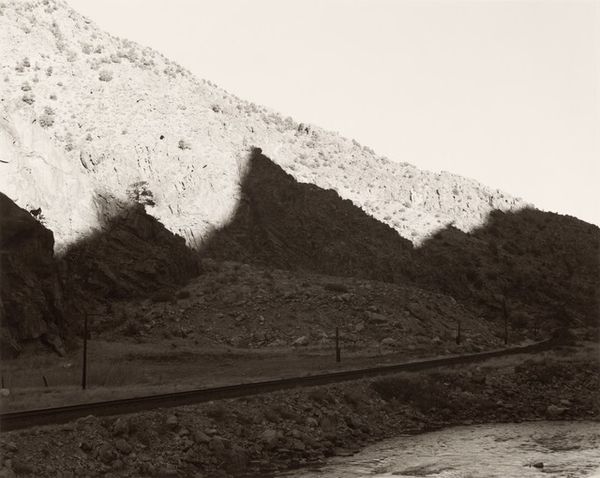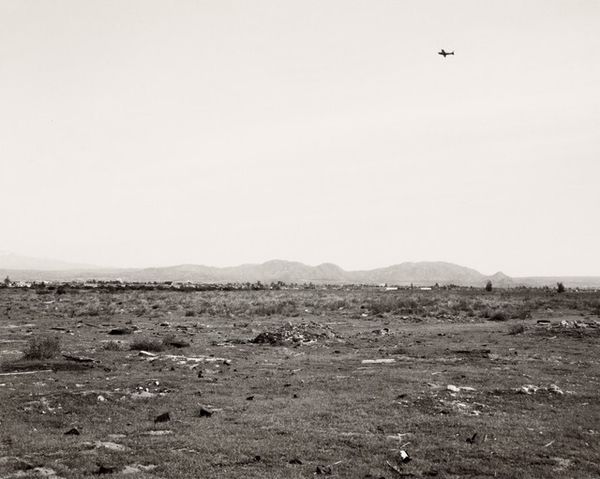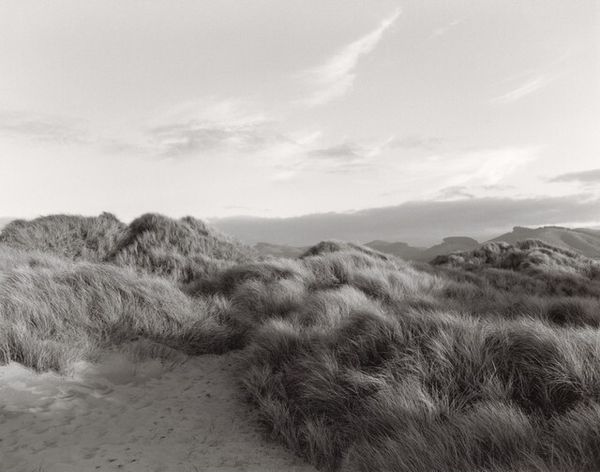
photography
#
contemporary
#
black and white photography
#
snowscape
#
countryside
#
landscape
#
black and white format
#
photography
#
outdoor scenery
#
low atmospheric-weather contrast
#
monochrome photography
#
monochrome
#
skyscape
#
realism
#
monochrome
#
shadow overcast
Dimensions: image: 31.7 × 39 cm (12 1/2 × 15 3/8 in.) sheet: 40.6 × 50.5 cm (16 × 19 7/8 in.)
Copyright: National Gallery of Art: CC0 1.0
Curator: Standing before us is Robert Adams' photographic print, "Defoliated Orchard, Highland, California." The work probably dates from somewhere between 1983 and 2000. It is part of his larger investigation into the American West. Editor: Well, right away, I’m feeling the silence. You can almost hear the quiet that descends after a hard freeze. I am picturing that first bird, testing out the branches. It's lovely, almost…Japanese, with those stark branches. Curator: The apparent stillness is key, but I would suggest that we must recognize that photographs like this carry considerable social weight. What looks to you to be silent is really heavy with the legacies of land use, resource extraction and development. Adams critiques, through his rigorous documentation, the ways in which the West has been transformed, often at great environmental cost. Editor: That makes perfect sense. It does also hit differently, now that you say that. There's this feeling that something *has* ended, perhaps permanently. Those stark trees… there’s no hiding, no leaves to obscure what has been lost, right? But is that beauty born of grief itself valid too, though? It's like appreciating the elegance of a ruin. Curator: Precisely. That tension is palpable in Adams' work, this complex layering of environmental awareness with a sharp formal aesthetic, creating politically charged landscapes. How can the image of ruins create a call to action? Who defines 'beauty', who benefits from the act of ruination? Editor: Maybe that starkness lets the form speak so clearly, lets the viewer feel a strange sense of presence amid what seems to be its absence. The shadows help deepen that mood, and make one also more aware of one's place here too, of being here looking...almost implicated. Curator: Exactly, and this makes “Defoliated Orchard” resonate beyond just an image. The power of photography, its apparent claim to objective witness, can offer an intervention within discourses of social change. Editor: What do you think? Something stark can speak to something so intimate, so powerfully. Thank you for seeing this with me. Curator: I think its power lies in this intersection of a personal experience of place meeting its larger historical context. An excellent experience, indeed.
Comments
No comments
Be the first to comment and join the conversation on the ultimate creative platform.
